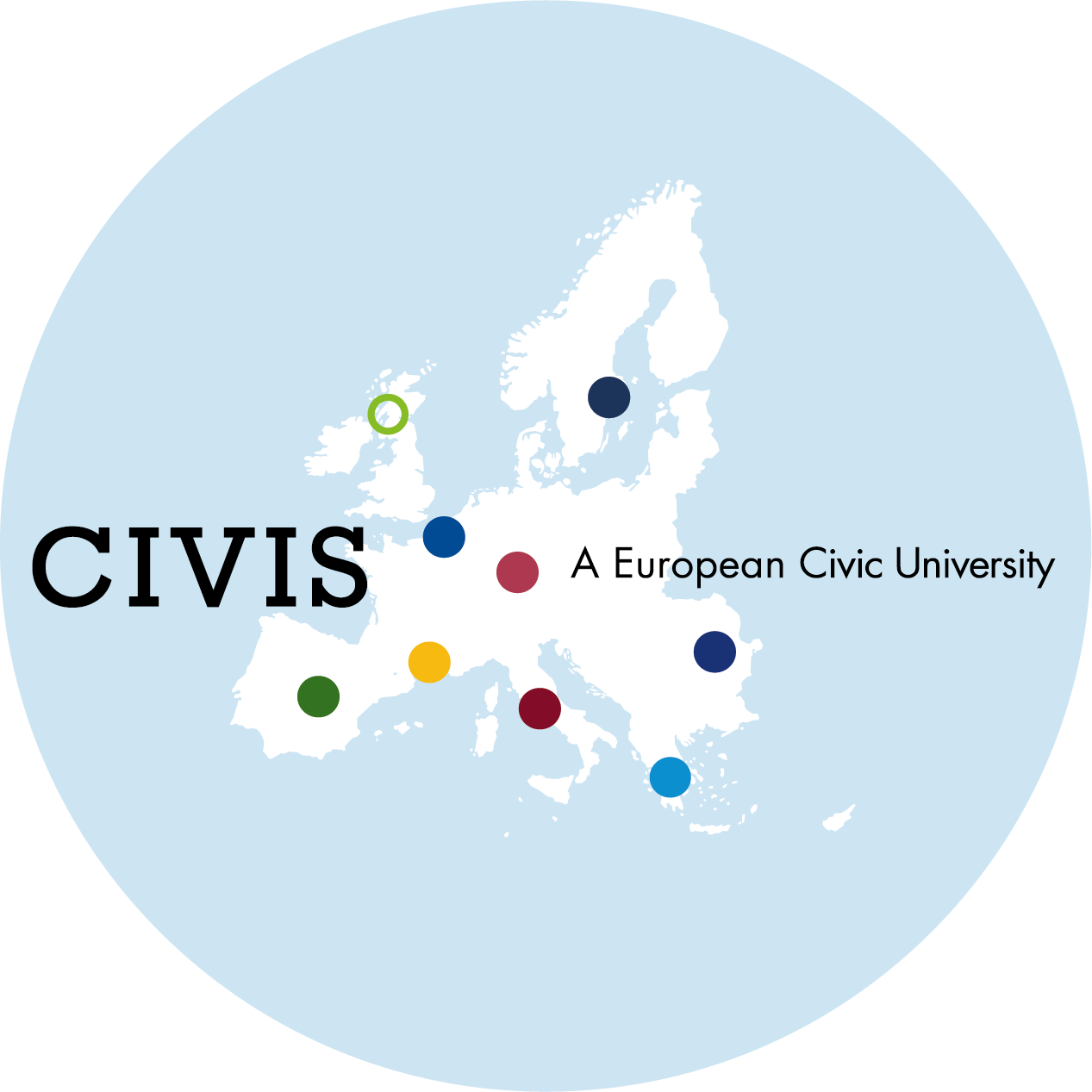
CIVIS - 'European Universities' initiative
In 2017, the European Union launched the 'European Universities' initiative. This initiative aims to strengthen strategic partnerships between higher education institutions across the EU and promotes the creation of around twenty 'European universities' by 2024. By combining study programs in several EU countries, students have the opportunity to earn a full degree. To help this initiative become a reality, the University of Tübingen joined forces with seven other universities in 2019 to form the association "A European Civic University" (CIVIS). In 2021 the University of Glasgow joined the partnership. On the path to this 'European University', these partner universities are working together, piloting, developing, and establishing international and interdisciplinary teaching, learning and research activities together. The central homepage of CIVIS informs about all activities in CIVIS, all disciplines, and all universities. The CIVIS page of the University of Tübingen gathers information about the extended possibilities and opportunities that CIVIS opens up for students and teachers at the University of Tübingen. The CIVIS page of the Faculty of Humanities primarily concerns students and teachers in the humanities.
About CIVIS
The University of Tübingen has joined forces with eight other European universities to form "CIVIS - A European Civic University". We, as partners, want to promote international student exchange, a European civil society, and cooperation with Africa and the Middle East.
The CIVIS network consists of the following universities:

Thematic Focuses
The thematic focuses in CIVIS combine and develop around the following five topics:
- health
- cities, spaces, and traffic
- climate, environment, and energy
- digital and technical change
- society, cultures, and cultural heritage
With this work, CIVIS does not seek to only promote European cohesion. Cooperation with the Maghreb States, the Middle East, and African countries south of the Sahara is also the focus of the association. The University of Tübingen has taken the lead within CIVIS in order to establish partnerships with universities in these regions.
Information on studies, teaching and research
Students can study at CIVIS partner universities as part of the ERASMUS + program and take part in the CIVIS courses offered there as part of the enrolled program (depending on the respective conditions of participation).
Further information for interested students
Further information for teaching and research
Teachers and researchers at Tübingen in the Faculty of Philosophy found here
List of faculties, institutes, and schools of the CIVIS partners with links found here
For a presentation of research and research foci at the Faculty of Humanities, please see Core Research at the Faculty of Humanities.
CIVIS for academics and resaercher (Kopie 1)
Open events
The Department of Language Education of Stockholm University organises Language Cafe sessions where students and university staff from a CIVIS member university get the opportunity to practise languages in an informal setting, together with other students and native speakers.
The Language Cafes will be running digitally via the e-meeting service Zoom.
News
CIVIS publishes a handbook on innovative pedagogies: ways into the process of learning transformation
18 février 2021
Ongoing events
Modernisms in Transit: Dialogues and Crossings
This one-week CIVIS School provides an interdisciplinary programme that explores trans-European modernist trajectories through the study of various cultural forms and spaces. The course focuses on transnational connections and dialogues in conjunction with a recent reflection on borders, migration, mobility, collective memory, essential to understanding our current moment.
Urban archaeology in the 21st century
The Student Week in Urban Archaeology is an annually offered course, open to BA, MA, and PhD students from all CIVIS member universities, collaboratively designed by the Universities of Athens, Aix-Marseille, and Stockholm.
The course will consist of five days of lectures, classes, on-site instruction, and a student workshop on the particularities, interdisciplinary nature, and everyday challenges of fieldwork in contemporary urban environments, and will take place in Athens, Greece.
Course dates: 6-10 June 2021
Languages in Europe and their diachronies
Languages in Europe and their diachronies is a blended-learning programme that consists of an intensive online winter school (February 2021), an online workshop and an intensive summer school that will take place on the island of Naxos, Cyclades, Greece (July 2021).
This course is opened to BA, MA and PhD students at the CIVIS member Universities and working in the fields of linguistics, languages (Classical Languages - Medieval, Modern European Languages), history, archaeology, classics or medieval literature.
Course dates: Feb – July 2021
Junior Fellows for Intercultural Studies
The Center for Interdisciplinary and Intercultural Studies (CIIS), University of Tübingen, invites doctoral students of all CIVIS-Universities to become Junior Fellows in Intercultural Studies for the academic year of 2020/21 and pursue a program collaboratively organized by the Universities of Athens, Bucharest and Tübingen. Application is open to doctoral students in philosophy, literature, cultural studies, sociology, political sciences and neighboring subjects.
The program starts October 2020 and runs through July 2021.
Topic 2020/21: Belonging – the meaning of a fundamental structure of the human being in the 21st century.
